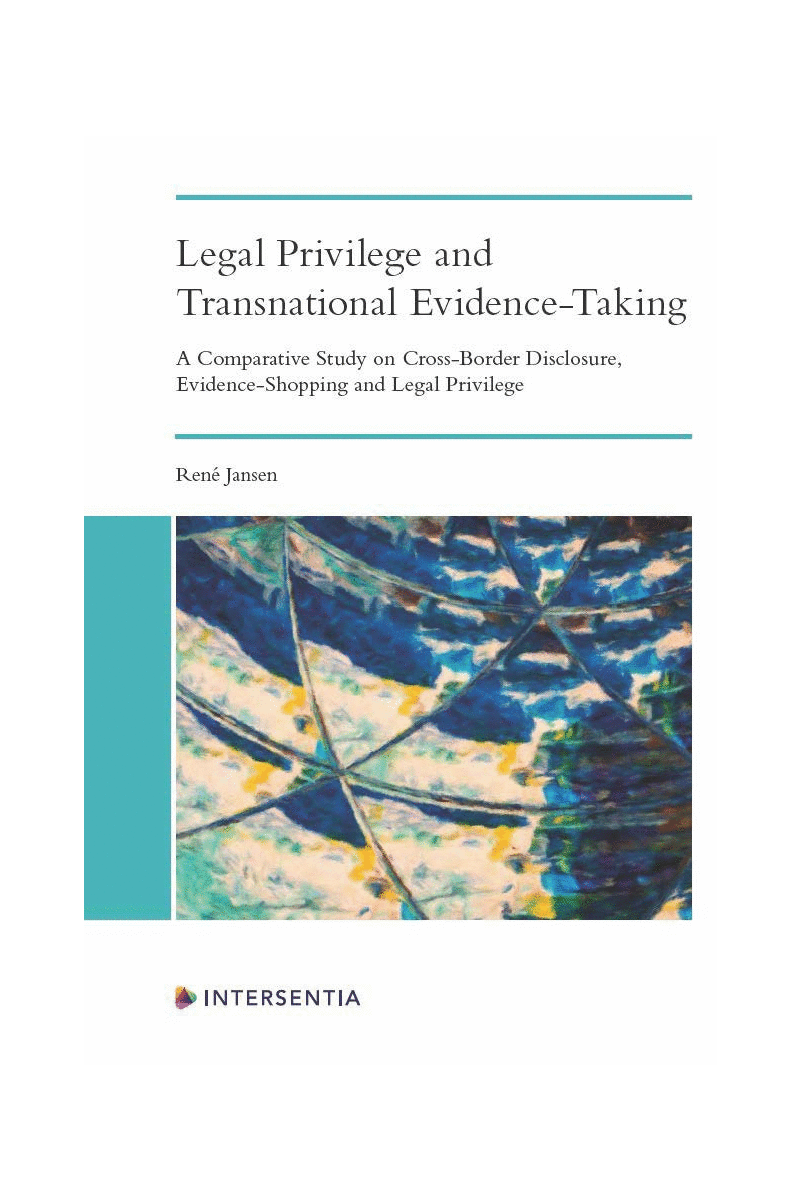 maestro
mastercard
visa
maestro
mastercard
visa

Legal Privilege and Transnational Evidence-Taking
A Comparative Study on Cross-Border Disclosure, Evidence-Shopping and Legal Privilege

There are various methods for taking evidence abroad during litigation. This work focuses on two of them: 1. obtaining legal documents from a foreign national adversarial party during the main proceedings (‘cross-border disclosure’), and 2. obtaining documents with the help of an auxiliary court, with the aim of introducing them as evidence during foreign civil proceedings (‘evidence shopping’). It has a particular focus on the situation where a party wants to inspect information that their opponent has confidentially shared with a foreign (in-house) lawyer.
In such instances, various questions arise. May the court grant the disclosure order based on the procedural law of its state? If so, how should the court determine the applicable law regarding possible legal privilege? Will this be the rules of its own state, or should the court apply a foreign state’s rules on legal privilege instead? And does it make a difference whether the applicant requests disclosure during the main proceedings, or considering civil proceedings that will take place abroad?
This book discusses these questions regarding the U.S. federal, English, French, German and Dutch legal systems.
It inter alia argues that the Hague Evidence Convention and the EU Evidence Regulation do not prevent a court from compelling a litigant to disclose a document in violation of a foreign state’s laws. Furthermore, it demonstrates that in each of the examined legal systems, courts, in principle, have the authority to grant such a disclosure order, and that most of these courts appear to apply the legal privileges of their state when the requested information has been shared with a foreign (in-house) lawyer. This book also shows that various courts use an alternative rule for determining the applicable law on legal privilege.
Having outlined in which of the examined legal systems an applicant might be able to shop for evidence in light of a foreign civil procedure – that might enable them to obtain information that is not discoverable according to the laws of the state where the main proceedings take place – the book proceeds with explaining the differences between the legal systems’ rules on legal privilege. In doing so, it brings to light instances where an applicant could strategically try to obtain information that is solely privileged from disclosure on the basis of a foreign state’s rules on legal privilege.
The book concludes by proposing a new rule that courts should use for determining the applicable legal privilege law in such cases.
RENÉ JANSEN obtained his PhD from Tilburg University, the Netherlands. He also completed his master’s in International and European law (cum laude) and research master’s in law at the same university. During his bachelor’s degree, René studied at the University of Montpellier (France) for one semester. He currently works for the advisory staff of Advocates General at the Dutch Supreme Court and has previously worked as a lecturer and researcher at Tilburg University. He has published several articles relating to the fields of Private International Law, as well as Dutch Civil and Criminal Procedural Law.
| Type of product | Book |
|---|---|
| Format | Paperback |
| EAN / ISSN | 9781839702433 / 9781839703171 |
| Weight | 700 g |
| Status | Available |
| Number of pages | xxxii + 296 p. |
| Access to exercice | No |
| Publisher | Larcier |
| Language | English |
| Publication Date | Sep 20, 2022 |
| Available on Strada Belgique | No |
| Available on Strada Europe | No |
| Available on Strada Luxembourg | No |
Downloads
- Table of contents and preliminary pages
- Chapter 1. Introduction
- PART I. A STUDY ON THE EXTENT TO WHICH COURTS MAY ORDER THE DISCLOSURE OF INFORMATION PRIVILEGED UNDER FOREIGN LAW
- Chapter 2. The (Non-)Exclusiveness of the Evidence Convention and the EU Evidence Regulation
- Chapter 3. Taking Documents from a Foreign Party when a Court has Subject-Matter Jurisdiction
- Chapter 4. Taking Documents from a Foreign Party when a Court has No Subject-Matter Jurisdiction
- Chapter 5. The Limits of Legal Privilege: A Comparative Overview
- PART II. A STUDY ON ADOPTING A NEW, UNIFORM CONFLICT RULE AS TO THE APPLICABLE LAW ON LEGAL PRIVILEGE
- Chapter 6. Towards a New Conflict Rule on Legal Privilege in Transnational Civil Litigation
- Chapter 7. Conclusion